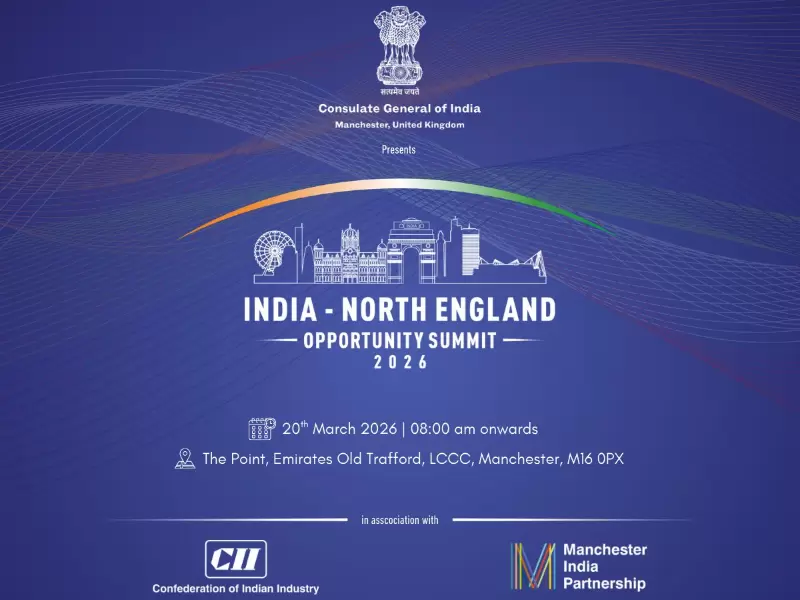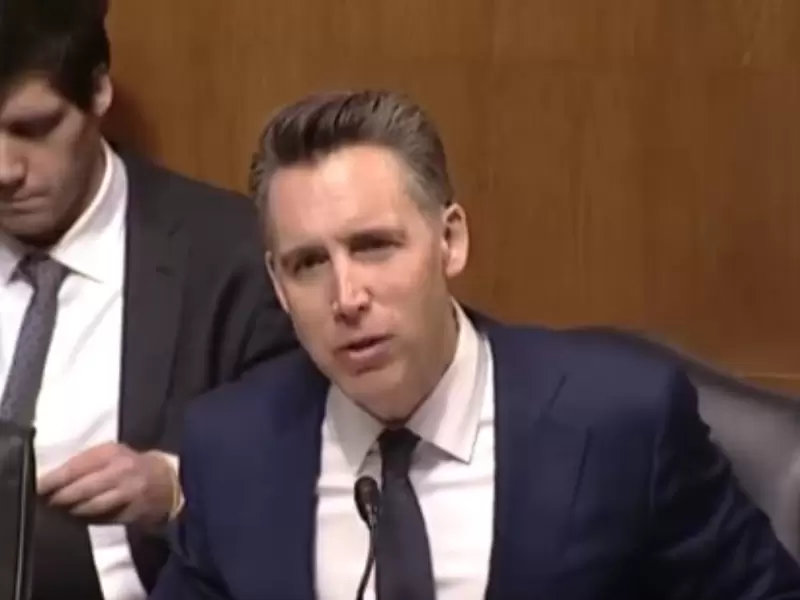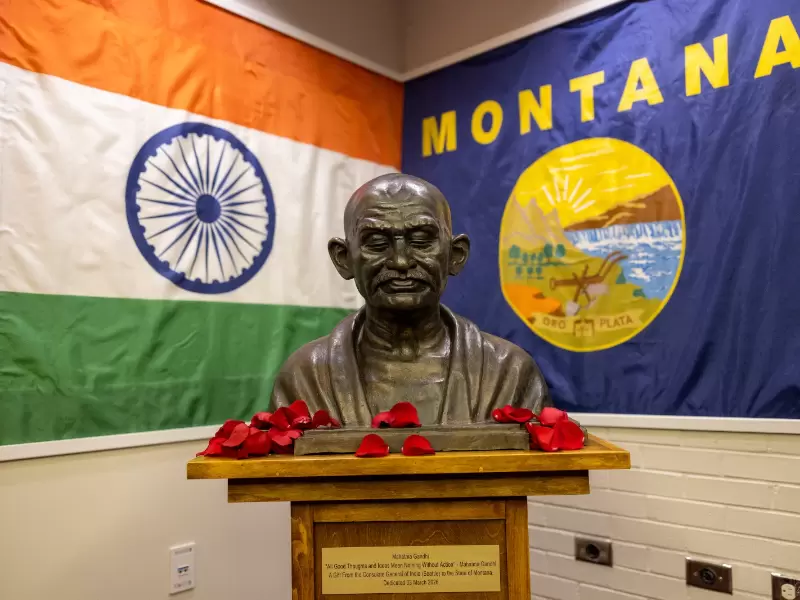US, Canada to resume trade talks after Ottawa drops digital tax
"Very simple. Prime Minister Carney in Canada caved to President Trump and the United States of America," Karoline Leavitt said, crediting Trump's hard-line negotiating style for the shift.
.JPG) U.S. President Donald Trump meets with Canadian Prime Minister Mark Carney in the Oval Office at the White House in Washington, D.C., U.S., May 6, 2025. / REUTERS/Leah Millis/File Photo
U.S. President Donald Trump meets with Canadian Prime Minister Mark Carney in the Oval Office at the White House in Washington, D.C., U.S., May 6, 2025. / REUTERS/Leah Millis/File Photo
The United States will resume trade negotiations with Canada immediately after Ottawa scrapped its digital services tax targeting U.S. technology firms, White House economic adviser Kevin Hassett said on June 30.
"Absolutely," Hassett said on Fox News Channel when asked about the talks restarting.
Also Read:Trump cuts off US trade talks with Canada, shattering optimism over tariff deals
White House press secretary Karoline Leavitt told reporters that Canadian Prime Minister Mark Carney called U.S. President Donald Trump on June 29 evening to tell him the tax was being dropped, calling it a big victory for U.S. tech companies.
"Very simple. Prime Minister Carney in Canada caved to President Trump and the United States of America," she said, crediting Trump's hard-line negotiating style for the shift.
"President Trump knows ... that every country on the planet needs to have good trade relationships with the United States, and it was a mistake for Canada to vow to implement that tax that would have hurt our tech companies here in the United States," she said.
Trump had asked Canada to drop the tax at a G7 meeting in Canada earlier in June, Hassett said. "It's something that they've studied, now they've agreed to, and for sure, that means that we can get back to the negotiations."
Canada halted its plans to begin collecting a new digital services tax targeting U.S. technology firms just hours before this was due to start on Monday in a bid to advance stalled trade negotiations with the U.S.
Canada's finance ministry said late on Sunday that Carney and Trump would resume trade negotiations in order to agree on a deal by July 21.
"Thank you Canada for removing your Digital Services Tax which was intended to stifle American innovation and would have been a deal breaker for any trade deal with America," U.S. Commerce Secretary Howard Lutnick responded in a post on X.
Stocks hit record highs on Wall Street on June 30 morning as sentiment in the markets rose amid optimism about U.S. trade negotiations with key partners, including Canada.
U.S. Treasury Secretary Scott Bessent also struck an optimistic tone over the potential for "a flurry" of trade deals ahead of a July 9 deadline, after which 10 percent U.S. tariff rates on imports from many countries are set to snap back to Trump's April 2 announced rates of 11 percent to 50 percent.
But Bessent, speaking on Bloomberg Television, warned that countries may not get extensions from that deadline, even if they are negotiating in good faith as he suggested previously. Any extensions would be up to Trump himself, Bessent said.
Leavitt said Trump was meeting his trade team this week to set tariff rates for those countries that weren't negotiating.
"He is going to set the rates for many of these countries if they don't come to the table to negotiate in good faith, and he is meeting with his trade team this week to do that," she said.
Trump abruptly called off trade talks with Canada on June 27 over Ottawa's digital services tax, saying it was a "blatant attack." He reiterated this on Sunday, pledging to set a new tariff rate on Canadian goods within the next week, which threatened to push U.S.-Canada relations back into chaos after a period of relative calm.
"We have countries that are negotiating in good faith, but they should be aware that if we can't get across the line because they are being recalcitrant, then we could spring back to the April 2 levels," Bessent said. "I hope that won't have to happen."
TRADE U-TURN
Trump and Carney met at the G7 summit, with the Canadian prime minister saying they had agreed to wrap up a new economic agreement within 30 days.
Canada's planned digital tax was 3 percent of the digital services revenue a firm takes in from Canadian users above $20 million in a calendar year, and payments were to be retroactive to 2022.
It would have impacted giant U.S. technology firms, including Amazon.com, Meta, Alphabet's Google and Apple.
The tax collection slated for June 30 will be halted, a statement from Canada's finance ministry said. Finance Minister Francois-Philippe Champagne will bring forward legislation to rescind the Digital Services Tax Act.
Canadian business groups applauded Carney's decision as well as the U.S. Congress' removal of a "revenge tax" provision from Republican tax legislation, known as 899.
"The decision to eliminate the DST makes sense. This tax would have fallen on Canadian consumers, businesses, and investors in the form of higher costs and hurt our economy at a critical time," said David Pierce, vice president of Government Relations at the Canadian Chamber of Commerce in a statement.
Some observers said Carney's decision ran counter to his campaign promises, however. Carney's Liberal party won an election in April pledging to stand up to Trump.
"It feels like we're standing down really quickly," said Vass Bednar, managing director of the Canadian Shield Institute for Public Policy, a think tank.
Opposition Conservative Party leader Pierre Poilievre said Carney needs to demand concessions from Trump.
"Canadians need certainty that Liberals will put Canada First and defend Canadian sovereignty in these negotiations," Poilievre said on X.
Canada is the second-largest U.S. trading partner after Mexico, and the largest buyer of U.S. exports. It bought $349.4 billion of U.S. goods last year and exported $412.7 billion to the U.S., according to U.S. Census Bureau data.
Canada had escaped Trump's broad tariffs imposed in April but still faces other duties, including 50 percent on steel and aluminum exports to the United States.
ADVERTISEMENT
ADVERTISEMENT
E Paper
Video




 Reuters
Reuters
.jpg)












Comments
Start the conversation
Become a member of New India Abroad to start commenting.
Sign Up Now
Already have an account? Login